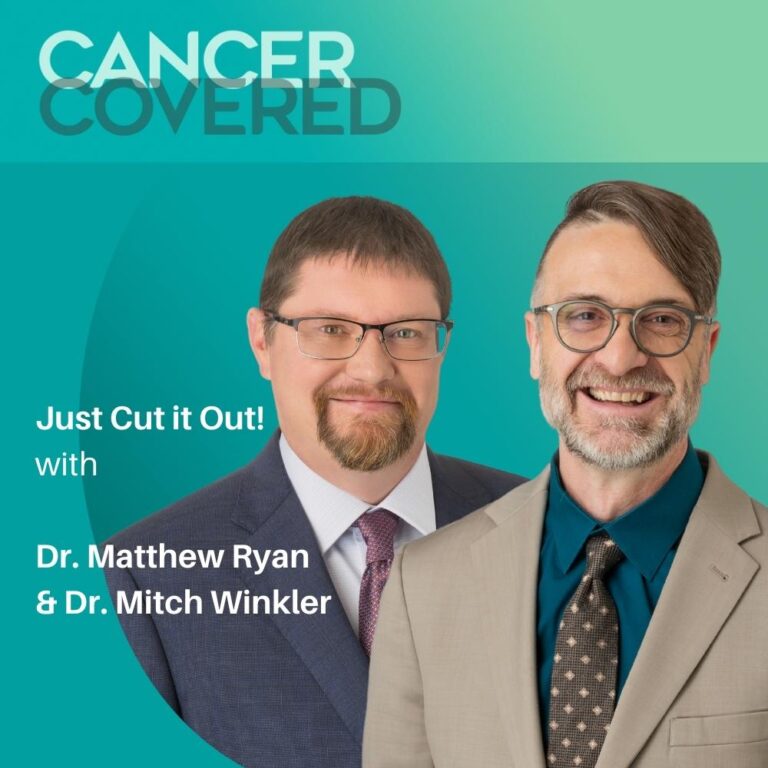Podcast: Play in new window | Download
This week on Cancer Covered:
- Why surgery isn’t always the answer for treating or curing cancer
- Why our ancient ancestors did not perform radical surgeries to treat cancer
- The discovery of anesthesia and its impact on treating cancer
- What inspired Dr. Halsted to explore using surgery as a treatment option for breast cancer
- Realizing that radical mastectomies are not the ‘end-all-be-all’ cure for treating breast cancer
- The health and physical impacts of undergoing radical mastectomies
- The history and development of lumpectomies
- Understanding what modified radical mastectomies are and when it’s appropriate to perform them
- Preventing breast cancer diagnoses in high-risk patients through bilateral mastectomy surgery
- What cancer physicians can learn from Dr. Halsted’s career as a cancer doctor
Matthew joins us again today to discuss the origins of surgery for treating cancer. We talk about why sometimes, surgery isn’t always the answer for treating or curing cancer and why our ancestors believed the best way to treat cancer was to simply leave it alone.
We explore the development of anesthesia, which transformed how doctors viewed using surgery as a way to treat certain cancers, how radical mastectomies impact a woman’s health and quality of life, and how the discovery of using lumpectomy surgeries to treat breast cancer and differences between radical mastectomies and modified radical mastectomies. We also delve into when it’s appropriate to suggest a bilateral mastectomy to patients who are severely at risk of developing breast cancer.
Born and raised in Southwest Iowa, Dr. Matthew Ryan graduated from Iowa State University with a degree in aerospace engineering before attending medical school at the University of Iowa. While there, he completed his residency and oncology and hematology fellowships at the Mayo Clinic, where he developed the clinical practice guidelines for their oncology tumor group. As a board-certified Medical Oncologist and Hematologist at Green Bay Oncology, Matthew currently treats all types of cancers and adult blood disorders and serves as a trial participant for the National Cancer Institute Community Oncology Research Program.
“Cancer is a systemic disease. What you can see on the surface, or on the scans, doesn’t represent all of the cancer.”
– Dr. Matthew Ryan
Join Our Free Monthly Support Group
No one should carry the burden of cancer alone. A cancer diagnosis can make you and your loved ones feel isolated and alone – just when you need support the most.
Our social workers at Green Bay Oncology know that meaningful connection brings strength and healing. Sharing the experience in a safe space with others on a similar path is often powerful and therapeutic. That’s why we offer a free monthly virtual and in-person cancer support group facilitated for you and your loved ones.
Wherever you are on your cancer journey – you are always welcome.
To join us, visit: https://gboncology.com/events/
We’ve Got Cancer…Covered.
Thanks for tuning into this week’s Cancer Covered with Green Bay Oncology episode. If you enjoyed this episode, please subscribe and leave a review wherever you get your podcasts.
Apple Podcasts | GooglePlay |Deezer | Spotify | iHeart
Be sure to share your favorite episodes on social media to help us reach more oncology professionals, cancer patients, and their families.
Join us on Facebook, Twitter, Instagram, and LinkedIn. For more exclusive content and information, visit our website.








